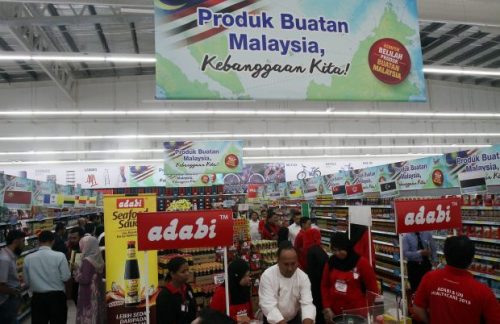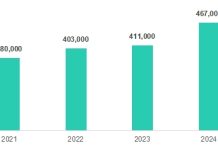
Small and Medium Enterprises Association of Malaysia (SAMENTA) urges to government to prioritise the SMEs survival which are going through a steep and difficult recovery currently.
SAMENTA central chairman Datuk William Ng, therefore, has proposed several measures in the immediate term that can help SMEs during this difficult period such as to:
Allow the market to dictate wages.
The recent announcement by the Minister of Human Resources of a proposed increment of minimum wage to “around RM1,500 has been received by our members with disbelief”.
While SAMENTA do not object to any increment in wages, it is best left to the market to dictate wages for various industries and job role, Ng said, adding that wages should be tied to productivity and output.
“A forced increment at this fragile stage of our economy is sending a mixed signal to businesses, especially SMEs, that any effort at recovery would be to dampen costs pressure on consumers, rather than in saving our SMEs and to catch up on lost growth. As it is, most businesses are already paying above RM1,500 to local workers, so an increment in minimum wage is unnecessary and is counter-productive,” he added.
Speed up the transition to market-led financing.
Ng said that Malaysian banks are tied down by rules set by Bank Negara, which goes against the general trend towards market-led financing, as championed by the peer-to-peer (P2P) players. While Bank Negara has been pro-active in supporting SMEs, he suggested that the government to step in to take on more risks to allow more businesses to obtain financing through various sources.
Ng said: “Our traditional reliance on collateral, rather than revenue or cash flow, is hampering growth at a time when SMEs are ready to grow but has exhausted their cash flow and disposed off some assets to weather the pandemic. Some of our P2P players are already dispensing short-term financing successfully via partnership with online marketplaces based on real-time revenue and cash flow data, so it makes sense to replicate this model to the larger SME community.”
Re-open the borders immediately.
While the National Recovery Council has proposed the re-opening of our borders by 1 March to fully-vaccinated travellers without any quarantine requirement, the government has not decided on this matter.
“SAMENTA supports the reopening of our borders to all travellers, and if that’s not feasible, to at least introduce a phase-in approach of first allowing fully-vaccinated business travellers to move-in and out of Malaysia without quarantine.
“The vaccinated travel lane (VTL) should also be sped up to more markets, and with capacity increased significantly. Without free movement, our hope for a trade-based recovery will remain subdued, especially since our SMEs are competing with regional competitors in the global supply chains,” Ng said..
Declare an endemic stage.
Ng also urged the government to declare the Covid-19 as an endemic as soon as feasible as the recent numbers in hospitalisation and percentage of infections leading to deaths have indicated that we are ready to enter an endemic stage in dealing with Covid-19.
He said: “While we agree that health must take precedence over all else, consumer confidence remain highly subdued, and the only forward for a quick economic recovery is for Malaysians to accept that the virus is here to stay, and to continue practicing safety and hygiene measures in daily lives.”
Immediately halt the increment in electricity bills.
Ng said the proposed increment added an unnecessary costs pressure to SMEs, especially at a time when Tenaga Nasional Berhad had achieved a record 9.6 percent revenue growth in the first 9 months of 2021. The government should also consider re-introducing the subsidy to commercial and industrial users.
“Economists Paolo Casadio and Geoffrey Williams have suggested that by bringing back the subsidy, our inflation can be brought to below 1.5 percent, which would in turn ease the cost pressure on consumers and wage earners,” Ng said.

SMEs are facing a triple whammy of rising costs, labour challenges and an unstable political environment.”Until and unless these are resolved or substantially mitigated, any hope of a full recovery to pre-pandemic level is an unrealistic illusion,” he added.
Recent policy announcements by the government have ignored not only the 5.6 percent negative growth in 2020 but also the compounding effect of that contraction to the Malaysian economy.
Ng said: “In order to catch-up on this compounded loss in the next 5 years based on the average of 4.88 percent GDP growth over the 5 years preceding the pandemic, we will need an average GDP growth of at least 7.5 percent over the next 5 years. That’s a tall, if not impossible, order.
As such, the government must be realistic in trying to implement adjustments that would affect the SMEs. For example, justifications that wages increment or electricity bill hike ‘have been delayed for 2 years’ do not account for this compounded loss. It makes little sense for SMEs to be warned not to increase prices or lay off redundant workers when costs are spiralling, coupled with our inability to operate at pre-pandemic levels.”
As such, Ng urged the government to take immediate steps to save SMEs. While SAMENTA is thankful for the various initiatives announced, including wage subsidies, re-hiring initiatives and soft loans to help SMEs tide over the pandemic, he said firmer policy interventions are needed at this juncture “if we are serious about helping push our SMEs, and by extension, the economy, to pre-pandemic levels”.














